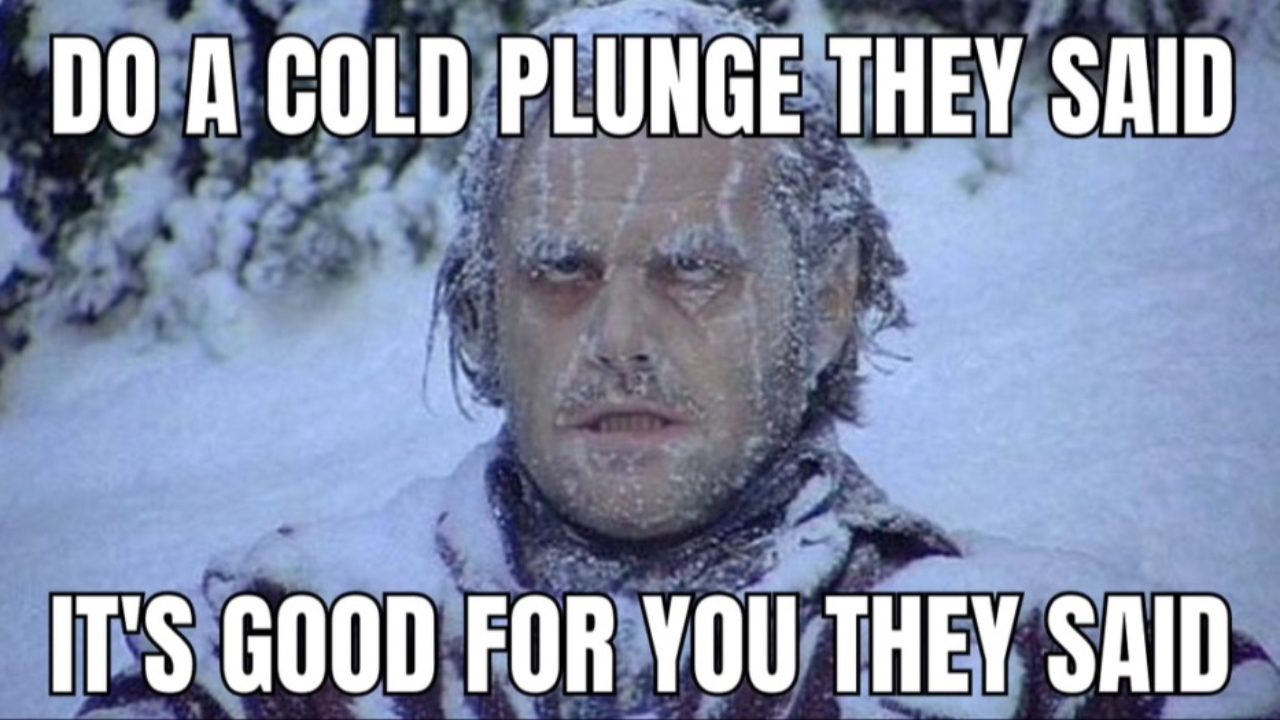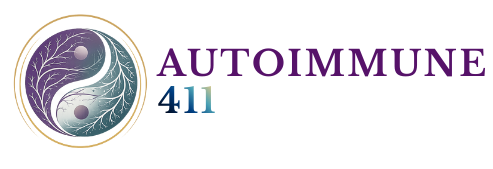
My Hot Take on Cold Plunging ❄️🔥
📰 Autoimmune 411 Feature Article | By Alice McDonnell
Cold plunges are everywhere right now—your favorite podcaster, that wellness influencer on Instagram, even your neighbor down the street is raving about their morning dunk in a tub of ice water.
And I’ll be the first to admit: there *are* benefits. In fact, on my recent guest appearance on Dr. Izabella Wentz’s **Healing Conversations** podcast 🎙️, we both agreed that cold exposure can boost resilience, support circulation, and even dial down inflammation when used appropriately.
But here’s the nuance most people miss: like so many “one-size-fits-all” wellness hacks, cold plunges come with **fine print**—especially when you’re navigating autoimmunity.
---
## My Cryotherapy Wake-Up Call 🚨
I don’t just research this stuff—I test it on myself. Recently, I tried a cryotherapy session. For a few minutes, I felt that classic endorphin rush everyone brags about.
Then… cue plot twist. 😬
Shortly afterward I found myself struggling to breathe, my chest tightening up and bringing on a nasty autoimmune flare.
That’s when reality hit me: what’s invigorating for one body can be destabilizing for another. And when you’re living with autoimmunity, those “small” stressors sometimes aren’t small at all.
---
## The Cortisol Connection (Izabella’s Insight) 🧠
On the podcast, Izabella made a critical point that really stuck with me:
👉 **If your cortisol is already low, cold plunges or cryo can make things worse.**
Here’s the cliff-notes version:
- Cold exposure = stressor 🚿
- Stressor = body’s “fight or flight” response
- Healthy adrenals = cortisol + adrenaline surge to adapt
- Burnt-out adrenals = no reserves to call on = crash (fatigue, dizziness, breathing issues like mine)
Her insight sent me digging deeper. 📚 I wanted to understand the full picture, so I researched further—and that’s when I uncovered even more red flags and considerations.
For autoimmune patients—where adrenal dysregulation is *already* common—this isn’t just theory. It’s lived reality.
---
## Other Precautions for Autoimmunity ⚠️
Cold plunging and cryo aren’t inherently “bad.” But they *are* powerful. And powerful therapies require discernment.
Things to keep in mind before jumping into an ice bath like a seasoned member of the Polar Bear Club 🐻❄️:
- **Thyroid Health 🦋** → Cold increases metabolic demand. If your thyroid is sluggish, your body may not adapt well.
- **Raynaud’s & Circulation Issues 🧊** → Intense cold can trigger painful attacks (fingers turning white/blue, ouch).
- **Immune Flares 🔥** → Sudden temp shocks can tip your immune system into overdrive.
- **Heart Stress ❤️** → Cold spikes blood pressure and heart rate—risky if your ticker’s already taxed.
- **Timing ⏳** → Cold therapy is best layered *after* foundational stability (sleep, adrenals, thyroid, gut repair).
---
## My Bottom Line 📝
I’m not here to throw cold water (pun 100% intended 😏) on the whole practice. For many, cold plunging can be energizing, mood-lifting, and even healing.
But for those of us with autoimmunity, the real question isn’t:
❌ “Is it good or bad?”
✔️ “Is it good for *me right now*?”
My advice:
- Start small (think cool shower 🚿 instead of ice barrel ❄️).
- Know your cortisol status.
- Listen to your body—not the hype.
Because resilience isn’t built by ignoring your body’s limits—it’s built by honoring them.
---
👣 *Want the full, step-by-step SMART Path™ with protocols, lab guides, and sequencing tools? Inside Autoimmune 411 Academy, I walk you through every phase of the SMART Path™—so you’ll know exactly what to do, when to do it, and how to adapt it to your body. No more guessing, no more overwhelm—just a clear, proven pathway.*
[→ Enroll Here]
💪 On the Frontlines with you,
**Alice McDonnell**
Founder and 20+ Year Veteran Patient Advocate
Autoimmune 411 ~ Hashimoto’s 411 ~ Autoimmune 411 Academy
🚨 **Disclaimer:** I’m not a medical professional. I’m sharing what I’ve learned through over two decades of research, patient feedback, and lived experience. This is for informational purposes only—always consult your healthcare provider before making changes to your health plan.

